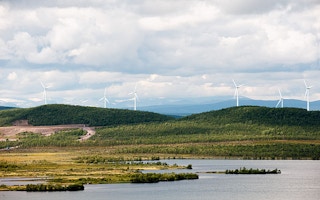Indeed, the goal to shift to 100 per cent renewable energy feels even more distant to many US municipal leaders following President Donald Trump’s controversial decision to pull out of the Paris climate agreement.
Enter the Global 100% Renewable Energy campaign, the first international platform advocating for the total reliance on clean alternatives to fossil fuel for cities and regions.
Founded in San Francisco in 2013, the campaign is comprised of international organizations dedicated to renewable options. This defiantly optimistic coalition insists that such a transition is very achievable.
Last month, the campaign published a handbook, 100% RE building blocks: A practical toolkit for a sustainable transition to 100% renewable energy. The document offers advice to cities willing to make to make the leap.
For more than 300 cities worldwide, the elimination of fossil fuels already is a policy objective, the authors emphasize. Municipalities that have made the commitment include Frankfurt, Vancouver, Sydney, San Francisco and Copenhagen.
Time frames for these undertakings vary. Vancouver is seeking to do so by 2050, while Malmö, Sweden, says it will try to accomplish the same goal by 2030. Pittsburgh Mayor William Peduto, in response to Trump’s recent announcement, said this month that his city would likewise seek to go 100 percent renewable by the end of the next decade, in partnership with a broader movement.
[See: At ‘renewable cities’ forum, envisioning a city that produces more energy than it uses]
A compelling reason for cities to act is that urban environments generate an estimated 70 per cent of the fossil-fuel-related emissions that contribute to climate change, the toolkit explains.
But designing urban growth around clean energy requires careful coordination. So, what actions should interested city leaders focus on? The campaign recommends these steps for a successful “100% RE” initiative:
- Create implementation strategies: Coordinated efforts that meld renewable commitments with broader development and environmental goals are more effective than isolated initiatives.
- Mobilize resources: Local governments should tap community groups, businesses, utilities, citizens and other stakeholders by forming coalitions of interested parties.
- Chart progress: Monitor shifts to renewable fuel with assessments of the quality, flexibility and costs of energy networks and benchmarks that measure accomplishments.
Other key priorities include the creation of legal and regulatory frameworks that support energy transitions. The authors recommend policies that encourage “decentralised” and “inclusive” energy systems that allow households and neighbourhoods to generate small amounts of fuel for personal consumption and sell any excess for profit.
[See: Meet the Edmonton official leading next year’s landmark conference on climate and cities]
Financial incentives that prompt private investment, coupled with investments from national, regional and local governments, are essential to build stable funding mechanisms.
Some of the municipalities that the campaign highlights for taking bold action include:
- Vancouver: The Greenest City Action Plan — which aims to make the Canadian city the world’s greenest by 2020 — “sets an example of best practices in citizen engagement and partnership building,” the toolkit says. The blueprint sets a mid-century target for complete reliance on renewables.
- Malmö: The Swedish city aims to achieve 100 per cent government-wide use of clean fuel by 2020 and community-wide reliance on such sources a decade later. The goals are “significantly more ambitious” than the European Union targets for Sweden, the authors note.
- Frankfurt: The German financial hub solicited input from citizens and businesses for its shift away from fossil fuels. A master plan features initiatives intended to spur use of alternative sources and advanced energy technologies.
Conservation efforts and retrofits of the built environment through rigorous efficiency standards also can help limit energy consumption and waste. “Several studies demonstrate that significant improvements in energy efficiency coupled with renewable energy sources can actually reduce building emissions to zero,” the toolkit says.
The authors contend that clean energy has wider societal implications. Greater job opportunity that results from the introduction of new energy systems can help tackle income inequality. And then there are the liveability benefits: “Social well-being” is enhanced when the air is fresher and there is stronger environmental protection.
[See: How Anne Hidalgo plans to get cities to adopt climate action plans by 2020]
Founding members of the Global 100% Renewable Energy campaign include: deENet, Fraunhofer ISE, International Geothermal Association (IGA), International Solar Energy Society (ISES), Institute for Sustainable Energy Policies (ISEP), World Bioenergy Association (WBA), World Council for Renewable Energy (WCRE), World Future Council (WFC) and the World Wind Energy Association (WWEA).
Other members include the Sierra Club, Climate Action Network International (CAN), the global cities network ICLEI and the Australian-based organisation Beyond Zero Emissions (BZE).
This story was published with permission from Citiscope, a nonprofit news outlet that covers innovations in cities around the world. More at Citiscope.org.










